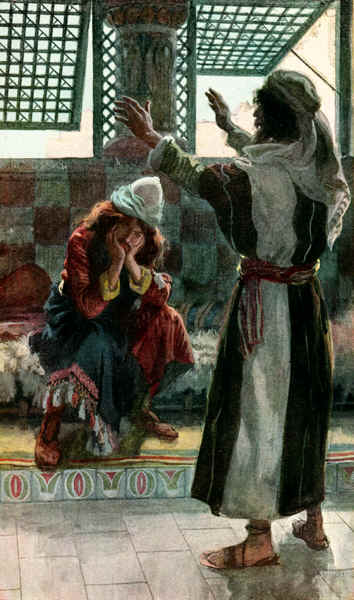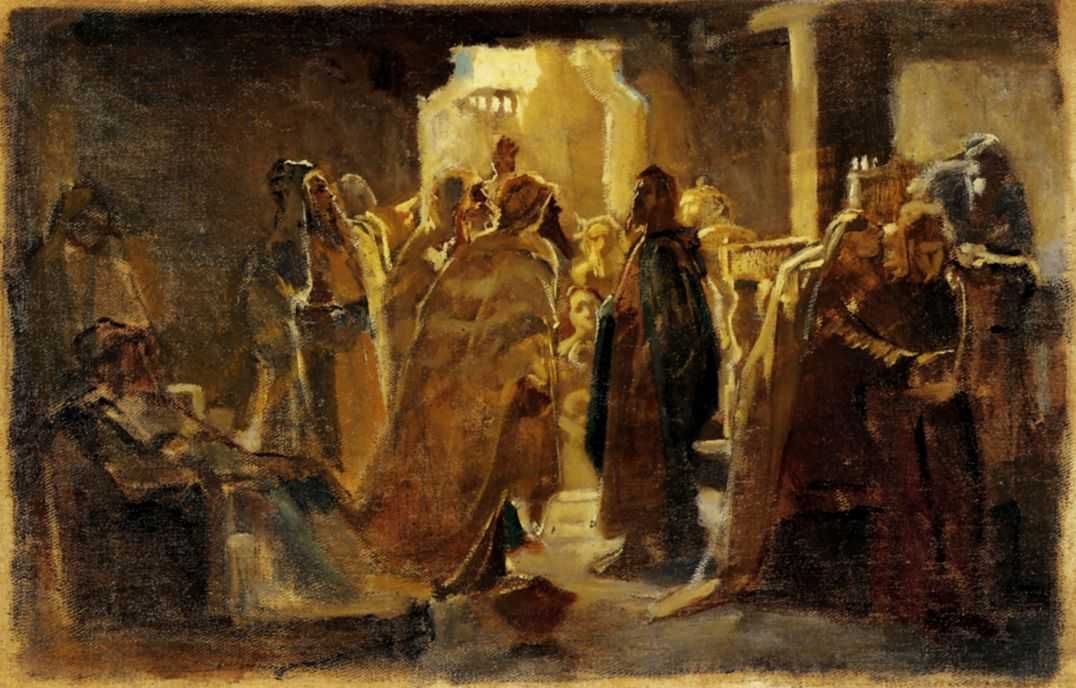|
While the two figures, the Suffering Servant and the Son of Man,
are one and the same, the occasion of their appearing cannot be the same.
The rabbis noticed the discrepancy, without resolving it successfully:
"R. Alexandri said: R. Joshua b. Levi
pointed out a contradiction. it is written, in its time [will the
Messiah come], whilst it is also written, I [the Lord] will hasten
it! — if they are worthy, I will hasten it: if not, [he will come]
at the due time. R. Alexandri said: R. Joshua opposed two verses: it
is written, And behold, one like the son of man came with the clouds
of heaven whilst [elsewhere] it is written, [behold, thy king cometh
unto thee … ] lowly, and riding upon an ass! — if they are
meritorious, [he will come] with the clouds of heaven; if not, lowly
and riding upon an ass." (Babylonian Talmud, Tractate Sanhedrin, 98a).
This cannot be the same occasion, though it is the same Messiah;
God does not give either/or prophecies.
The Suffering Servant shares His grave with the wicked: "He was led
as a lamb to the slaughter, and as a sheep before its shearers is silent,
so He opened not His mouth. He was taken from prison and from judgment,
and who will declare His generation? For He was cut off from the land of
the living; for the transgressions of My people He was stricken. And they
made His grave with the wicked—but with the rich at His death, because He had done no
violence, nor was any deceit in His mouth." (Isaiah 53:7-9). But Daniel's
Son of Man reigns forever, over an "everlasting dominion." With
whom can He make His grave while He is reigning forever? Some
Jewish interpreters, like Isaac Luria, have split the one Messiah into two:
Messiah son of Joseph and Messiah son of David. This way, one of the two
can die: and the Bible is clear that the Messiah must die:
"The rabbis taught: The Messiah b. David, who (as we
hope) will appear in the near future, the Holy One, blessed be He,
will say to him: Ask something of me and I will give it to thee, as
it is written [Ps. ii. 7-8]: 'I will announce the decree. . . .Ask
it of me, and I will give,' etc. But as the Messiah b. David will
have seen that the Messiah b. Joseph who preceded him was killed, he
will say before the Lord: Lord of the Universe, I will ask nothing
of Thee but life.' And the Lord will answer: This was prophesied
already for thee by thy father David [Ps. xxi. 5]: 'Life hath he
asked of thee, thou gavest it to him.'" (The Babylonian Talmud,
edited by Michael L. Rodkinson, Volume VII, Section Moed, Tract
Succah, Chapter V, Kindle location 29946)
A better approach is, as Jesus explained
to His accusers, that the occasion Daniel describes is yet to come.
Amidst the speculations of the Rabbis, this idea too is found, "Now
this disagrees with Samuel. For Samuel said, This world differs from
the Messianic era only in respect to servitude of the exiled, for it
is said, For the poor shall never cease out of the land. This
supports R. Hiyya b. Abba, who said, All the prophets prophesied
only for the Messianic age, but as for the world to come, the eye
hath not seen, O Lord, beside thee [what he hath prepared for him
that waiteth for him]." (Babylonian Talmud, Tractate Shabbath 63a);
i.e., the Messianic age is one thing, and the world to come, brought
in by the cataclysm of the Day of the Lord, is another thing. This
corresponds to the Christian understanding that there is a first advent of the
Messiah, and then a second in glory, wherein He reigns eternally.
The resurrection bridges the two advents:
|








